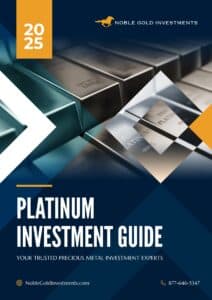Gold prices have been on the rise, fueled by the return of the “mystery buyer” in Asia and amplified by algorithmic trading, according to TD Securities’ senior commodity strategist Daniel Ghali. This surge highlights a deeper issue in the gold market—one that investors need to understand before deciding where to put their money.
While gold’s rally is grabbing headlines, it’s also important to recognize why short-term volatility doesn’t change its long-term value—and why gold remains a critical hedge, even in uncertain economic conditions.
Why Is Gold Surging?
The “Mystery Buyer” in Asia is back
For months, traders in Asia have been buying gold aggressively, especially as their local currencies weaken against the U.S. dollar. But this isn’t just one big investor—it’s a collective movement involving:
- Retail buyers in China loading up on gold
- Institutional investors securing positions
- Central banks increasing their reserves
Gold’s demand in Asia has been a major driving force behind its price movement over the past year, and it’s showing no signs of slowing down.
Algorithmic Trading Is Now Running the Show
Another big reason for gold’s price swings? AI-driven algorithms now dominate commodity trading.
According to Ghali, trend-following algorithms have become the most influential force in the gold market. These systems:
- React to price movements and accelerate buying or selling momentum
- Were a major reason for gold’s gains last week
- Can also trigger rapid sell-offs, leading to short-term price dips
Gold is no longer just about supply and demand—it’s now highly influenced by automated systems that make split-second decisions based on market trends.
U.S. Election Uncertainty & Tariff Risks
With Donald Trump leading in the polls, investors are bracing for potential tariffs on raw materials, including gold. This has led to:
- Traders moving large amounts of gold into U.S. vaults as a hedge
- Gold shipments out of London, creating supply shortages
- A surge in physical demand, further pushing up prices
Even though no tariffs have been announced yet, the fear of policy changes is enough to keep gold in high demand.
Why Gold Will Remain a Strong Investment—Even Through Market Fluctuations
Ghali warns that while gold prices will experience volatility, its long-term strength remains intact. But here’s the key point:
- The effects of Trump’s economic policies won’t be instant.
- Real economic shifts—like inflation and currency moves—take 5-10 years to unfold.
- If Trump’s reforms don’t extend beyond his administration, economic uncertainty will persist.
This means gold isn’t just a short-term play—it’s a long-term hedge against market instability, inflation, and currency devaluation.
Gold has historically preserved wealth when everything else wavers. While algorithmic trading and short-term market movements will cause fluctuations, the long-term case for gold remains as strong as ever.
💡 Bottom line? If you’re serious about protecting your wealth, gold still deserves a place in your portfolio.







